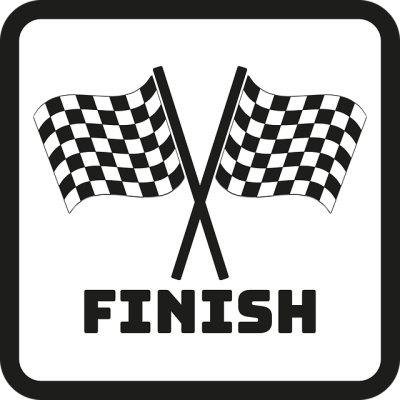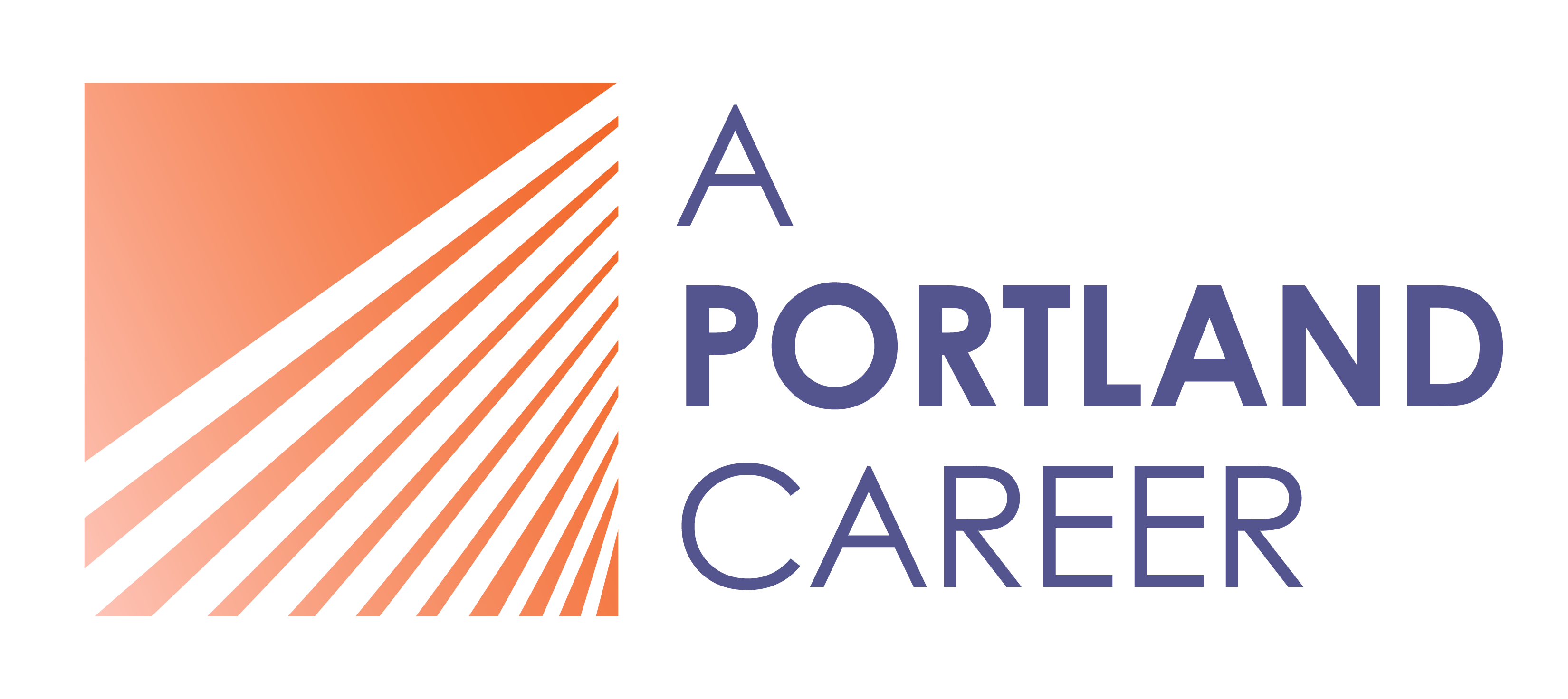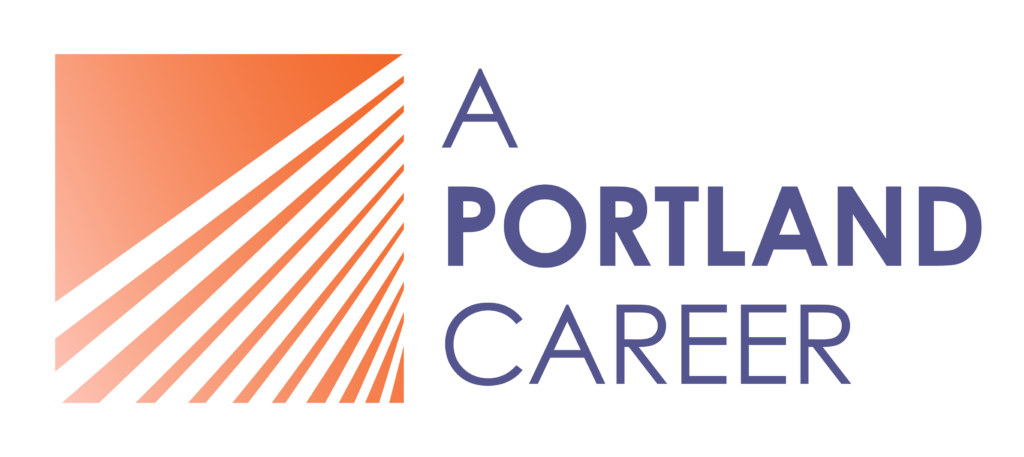Interview questions can sometimes come way outta left field. It’s a good idea to prepare for the more difficult or just plain weird interview questions you might get asked.
The best job interview tip: prepare! Confident tone, eye contact, and answers to common interview questions are all skills you can, and should, practice!
Advanced Job Interview Tips: Know Your Answer and How You’ll Say It
By A Portland Career, and edited by Dan Hahn, M.S., and Suzie Sherman
Interview prep got you down? We can help you with that.

Interviewing for jobs is a skill that takes preparation. To do well, you need to practice: this includes not only highlighting your skills and achievements, but also making the person sitting across from you feel confident in your passion and commitment to the job. Have you prepared for the most likely interview questions? Can you articulate why this specific role, at this specific company, is a great fit for you? Read on to level-up your interview game.
The job interview is your chance to make a great first impression. The hiring manager is often the person who you’ll report to at your next job (if you get the job offer!) The purpose of the interview is to demonstrate that you, the interviewee, are the ideal candidate for this specific position at this specific company. It’s so important to put preparation into the interview process, before you sit down for the actual interview.
In this article, we offer you advanced interview preparation guidance: how to practice your body language and tone, answering common interview questions, how to get comfortable speaking to your strengths and weaknesses, as well as how to make the hiring manager feel at ease, knowing that you are the person they want to hire. Interview skills are learned and practiced, not an innate ability. Here is our method for interview success that all job seekers should know.
Home → Helpful Articles → Interviewing → Advanced Job Interview Tips: Know Your Answer and How You’ll Say It
Here are more great posts about how to prep for your next interview:
- Virtual Job Interviews: Master the Art of Zooming It In!
- Interviewing As An Overqualified Candidate: Let’s Debunk Some Myths
- How to Ace the “Greatest Weakness” Question in Your Next Job Interview
- Answering Tough and Weird Interview Questions
- The Best Interview Questions You Should Ask at Your Next Job Interview
If you’re still feeling anxious about interviewing, get in touch with us, and we’ll make sure your interviews start landing you more job offers.
On This Page

Prepare for your job interview
We cannot emphasize this enough: you have to prepare for your interview, and practice your answers to the most common interview questions. Below, we’ll discuss pre-interview preparation, how to practice for your interview, and a round-up of the most common questions you need to practice answers for.
It wasn’t by accident that you made it to this interview: your resume and cover letter got you here. That means you’ve already written out your previous work experiences and accomplishments that are most relevant for this specific job. When you are asked, “Why are you interested in this position?” or “Why do you want to work for us?” you won’t be taken by surprise, because with thoughtful preparation, you will know your reasons for wanting this particular job. If you only give it a last minute thought, it will show, and not favorably!
Before you sit down to practice your interview
Start well before the interview by carefully rereading the position description. Scan for important organizational values and for competencies that will be most needed in the role. For example, in the position announcement, the organization may state integrity, collaboration, and client service are all important – not just for the role you’re applying for, but for everyone who works there to embody. In the responsibilities section, take note of the types of things you’ll be needing to do at work. What must you be really good at to succeed in the role? Take note of each and begin thinking about how your background and experiences line up to those needs.
Next, research the company and your interviewer or hiring team. You’ll see, in the sections below, where this research will benefit your answers to common questions.
- Read the company’s website and LinkedIn page. Find out who will be on your hiring team, and read their LinkedIn profiles to learn about their ideas and work philosophies, and see if you know people in common you can talk to about the company.
- Find the company on Glassdoor.Com for candid reviews of the company culture, as well as insight into the company’s successes and milestones.
- Google for press about the organization and members of your hiring committee and be ready to engage them about the latest news you’re finding. Genuine interest in the organization’s current goals will get you a lot of good mileage in your interview.
If it will be an in-person interview location, make sure to bring extra copies of your resume, to pass out to the hiring team. Even if they’ve already seen your resume via email or through the company’s applicant tracking system, ensuring they each have a copy in hand at the interview is an essential touch of professionalism.
On the day before the interview, pick appropriate, professional clothes. If you’ve researched the company, you’ll be familiar with their dress code and company culture. It’s not likely that you’ll have to wear a suit or a skirt for a tech startup job; but dress to impress if you are in a more traditional field like law.
Get a clue: Look at how people dress on LinkedIn in their headshots at the place you’re interviewing. If you were standing next to them at an event, you’d want to wear similar clothing. Choose what you wear with that in mind.
How to practice for your job interview
The most effective way to practice interviewing is to do it out loud. Practice by yourself in front of a mirror first.
We’re also available for your interview prep needs. We’ll help you evaluate the position description, strategize your responses and refine your self presentation so you’ll be much more confident.
You can also enlist a friend or a trusted colleague to practice with. Set up a role play, with your friend as the interviewer. This will give you crucial experience getting comfortable with common interview questions. An added bonus of practicing with a friend: they can rate you on your firm handshake with great eye contact.
Regardless of who you are practicing with, keep in mind these study questions, and ask your interview partner to give you honest feedback:
- Am I making good eye contact?
- Is my body language and posture tall, confident, and open, rather than hunched, tight, or closed?
- Am I conveying a friendly, positive tone of voice throughout?
- Is my tone confident and unapologetic when I address my strengths and my weaknesses?
- Am I framing my strengths, skills and accomplishments according to the needs of the company, and of the hiring manager, rather than centering my own material needs for the job?
Keep practicing until you’ve convinced your audience (including yourself!) that you are a strong, confident candidate who is self-aware and knows how to grow personally and professionally.
Get comfortable with answering the most common interview questions
Hiring managers want answers to questions that demonstrate you have thought about how you can contribute something to this job at this company. Have you taken the time to research the company? Can you talk about how this role fits in with your long-term plans? Are you honest about your strengths and weaknesses? Are you a team player who is receptive to ideas and feedback? Are you worth investing resources in as a new hire?
Behavioral interview questions are very popular. These kinds of questions often begin with “Tell me about a time…” or “Describe a time when…” or “Can you give me an example of…” Interviewers and career experts feel that these kinds of questions are more predictive of the applicant’s future job performance than more traditional questions.
Be sure, at minimum, to practice your answers to this list of questions:
Listen to Dan Hahn describe how to tackle the “Tell me about yourself” question on the Find Your Dream Job podcast:
- Tell me about yourself. This is probably the most important and overlooked question to prepare for. Since it’s likely to be one of the first questions asked, your interviewer’s first impression depends on the quality of your response.
- To prepare, consider first why you’ve been on the career path you have been until now. Was there a specific moment in time you knew you were cut out for this purpose, this type of profession? Tell them about that time, and pull your listener into what really motivates you.
- Next, quickly relate your top two or three strengths and link them to bookended experiences. For example you could say:
- To prepare, consider first why you’ve been on the career path you have been until now. Was there a specific moment in time you knew you were cut out for this purpose, this type of profession? Tell them about that time, and pull your listener into what really motivates you.
“I’m a very strong communicator and I’m really well organized. From my time persuading the board at ABC Organization, to my experience processing claims at XYZ Corp, I’ve had the honor of making meaningful changes for the communities we’ve served.”
- Finally, relate why you’re now as energized as you are to be in this interview, and what are you looking forward to in this role. For example:
“And this is why I am so eager to be the operations lead at QRS organization. I’m looking forward to more opportunities to apply my experiences and be even more strategic.”
As you can see, preparing well for this question helps your interviewer immediately see why you’d be a strong candidate for the opening. It’s not just “small talk” or a way for the interviewer to break the ice. This question gives you a strategic opening to win the interviewer to your side right from the beginning. Practice this question the most. Click here to schedule a mock interviewing session and we’ll help you nail it.
- Why are you interested in this position? This is where your knowledge of the job description comes in handy, so be sure to review it as part of your interview preparation. Relate your professional goals, your work experience, and your accomplishments to this particular role, and express your genuine excitement!
- Why are you interested in this company (or Why do you want to work for us?) Impress the hiring manager by demonstrating that you know something about the company’s mission or goals, and the kinds of specific services they offer, and then relate this to your own goals. Remember: demonstrate your passion for what the company does. This is where all your research on the company and your hiring team comes in. Read the company’s website and any recent press about new developments to prepare.
- Where do you expect to be in five years? Even if you don’t have a precise picture of where your career might take you, use this question as an opportunity to link this job and this company to your story about your career path. Emphasize that you are excited to learn and grow with the position, and that you’re eager to become a part of the team.
- Describe a time that you were part of a team and your role as a team member. The hiring manager will want to know if you play well with others. Relate your team experience to your accomplishments and how you enlisted support, tackled problems, and/or asked your supervisor for feedback.
- Describe a conflict you had on a job and how you resolved it. Similar to discussing your role in teams, the interviewer might want to know how you problem-solve, whether you work independently, or involve others to help resolve problems or conflicts of vision or communication. Again, bring in your accomplishments and describe how you rose to the challenge.
- What are your strengths? Get comfortable with “bragging politely” about your strengths. (See the next section for more detail.) This is where you get to share, with confidence, your unique skills and accomplishments that set you apart as a candidate and make you the best match for this job. If you haven’t spent time assessing your skills, it’s time for a refresher.
- What is your greatest weakness? Just as you need practice to gain confidence talking about your strengths, you also need to practice facing your weak spots. Address this honestly and with a spin toward professional growth. Turn the question about your weakness into an opportunity to present your resilience, and your openness to feedback and improvement.
- Why should we hire you? All your answers to the interviewer’s questions should lead to this one. Remind the interviewer what you’ve been saying all along: your specific experiences, accomplishments, and goals all lead you to this position at this company. You are the right fit for the job.
Read a more extensive article about common job interview questions here. It also discusses the kinds of questions you might want to ask the hiring manager in an interview. Once you feel well-prepared for common interview questions, read our post about the more unusual or weird questions that might pop up, so you’re not caught off-guard!

Brag politely
Most people find it uncomfortable to talk about their achievements, fearful that they might be perceived as arrogant. It is imperative to change this mindset, especially when engaged in a job search. How else are you going to convey your knowledge, skills, and abilities to a potential employer? Instead of thinking about sharing accomplishments as bragging, keep the focus on your goal: sharing what you specifically have to offer to solve the employer’s problems.
You can brag about yourself in an interview without being a jerk! “Easier said than done,” you say? Consider these suggestions:
- Cite a third party. “I consistently get high scores for _______ in my performance reviews,” or “while working at my last company, I regularly heard positive feedback about _______.” If you are mentioning feedback from supervisors and peers, it can feel less like bragging and provide some solid evidence of your strengths.
- State your strengths as passions. There’s a reason you’re interested in this position. What is it? Describe how your professional interests, strengths, and skills align with the job, and you’ll imply that your performance is driven by more than a paycheck.
- Give examples of your accomplishments. State the problem you addressed, how you tackled it, and what the successful outcome was. Read our post about how to craft effective accomplishment statements for interviews for more detail!

Make your future boss the most important person in the room
In job interviews, it’s natural for the candidate to think of themself as the center of the meeting, and that’s how most job candidates behave. So, imagine the impression you’d make on your prospective employer if you redirected the spotlight. Here are four tips to help you do that:
- Pause a little longer. Pausing after the interviewer speaks shows that you are interested in his or her thoughts. You’re really letting their ideas sink in, and you’re waiting to see if they’ll tell you more. If you have the tendency to interrupt or jump in quickly in more casual conversations, give yourself a silent count of three before you respond.
- Do your research. It’s human nature for people to bond with those who show interest in their ideas and concerns. Research your interviewer on LinkedIn, including articles or blog posts they have written. Then, ask relevant questions about their priorities and professional approach. It’s fine to refer directly to what you learned from LinkedIn—this is considered research rather than snooping.
- Exude interest! In addition to asking relevant questions and expressing verbal enthusiasm, show your engagement and interest through your body language: sit tall in your chair, lean forward, give good eye contact, and smile. If you are being interviewed by a panel or a team, make eye contact with everyone in the room, giving particular attention to your prospective boss.
- Send the right nonverbal signals. Only a sliver of any message is in the words. Practice greater awareness of the nonverbal messages that you’re conveying, intentionally or otherwise. Maintain an open body posture—no folded arms, crossed legs, or furrowed brows. Again, solicit the help of a friend or family member, or practice in front of the mirror and take note of what your body is saying.
Instead of viewing these suggestions as an invitation to be fake, think of them as ways to show genuine interest in the hiring manager. Also, remember your pride in what you bring to the table!

Finishing touches for job interview success
Once the interview is over, make sure you pass those firm handshakes around the room to each person on the hiring team. Prepare to follow up with the hiring manager or panel by asking for business cards. This is prep for sending thank you notes or thank you emails within the next two days. If you have been placed for this interview by a recruiter, be sure to send a thank you email to them as well.
Phone interviews and video interviews are much more common now, and require some tweaks. Be sure to read our tips on preparing for your virtual interview process!
Final thoughts on advanced interviewing
You’ve spent time in your job search process exploring your interests, taking an inventory of your skills, and researching the right employers to work for. You’ve probably also spent hours writing your resumes and cover letters. Now it’s time to put that much preparation into your interviews. Practice answering common interview questions, keeping in mind your body language and confident tone. Practice putting the focus on your future boss and on the needs of the company. Then, tap a friend to give you honest feedback about how you are coming across. It’s time to rehearse your role as the ideal candidate for your new job! If you want expert help to prep for interviews, book a consult with us! We’re here for you.
Key takeaways
- Giving a good job interview is a skill that you need to prepare for and practice.
- Prepare for your interview before it’s time to sit down with the hiring manager.
- Practice in front of a mirror, getting comfortable with confident body language, eye contact, and answering questions about your strengths and weaknesses.
- Ask a friend or a trusted colleague to do a mock interview with you, playing the role of the interviewer. Ask them for feedback about your body language, tone of voice, and your answers to questions.
- Practice relating the interview questions to your strengths and skills, and how your experience matches the needs of the job and the company.
- Inspire confidence in the hiring manager by researching their work, citing it, and asking them questions about their vision for the position and the company.
Related articles you might be interested in:
When and How To Say Thank You after Your Interview
Thank you notes never go out of style! Here’s what to include in a thank you note or email after the job interview.
Virtual Job Interviews: Master the Art of Zooming It In!
Most employers now conduct virtual job interviews. Master these remote interview skills with tips from our career experts!
How to Ace the “Greatest Weakness” Question in Your Next Job Interview
Learn how to best answer the “tell me about your greatest weakness” question in your next job interview with expert strategies and sample answers.





